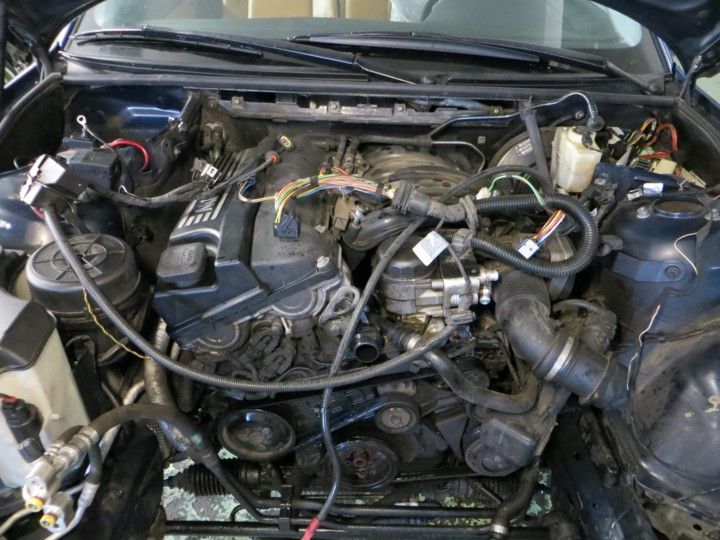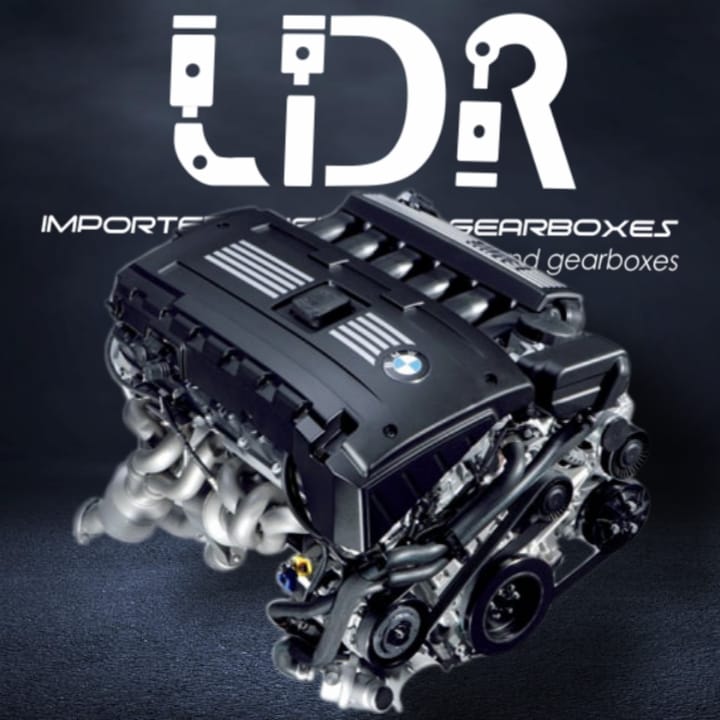BMW 318ti: Where to Locate the Best Deals on Components and Add-on
BMW 318ti: Where to Locate the Best Deals on Components and Add-on
Blog Article
Vital Factors To Consider for Choosing the most effective Engine for Your Requirements
In the realm of selecting the ideal engine to satisfy your needs, a number of crucial aspects need meticulous consideration to ensure ideal performance and efficiency. From the nuanced balance between power and efficiency to the often-overlooked facets of upkeep and solution demands, each element plays an essential role in figuring out the most appropriate engine for your certain demands. As the complexity of engine innovations remains to advance, critical one of the most suitable option requires a deep understanding of the interaction in between various factors to consider. By discovering the complex internet of variables that underpin this decision-making process, a clearer course arises in the direction of choosing an engine that not just fulfills yet exceeds your assumptions.
Power and Performance
When examining engines for optimal efficiency, it is vital to prioritize both power output and performance. Power result determines the ability of an engine to generate power, which directly affects its efficiency. A high power output is crucial for demanding jobs such as high-speed needs or heavy-duty applications. It makes sure that the engine can handle the work properly and efficiently. Nevertheless, power alone is not sufficient; effectiveness plays a substantial function in determining the total efficiency of an engine. Efficiency describes just how well the engine transforms gas into usable power. A a lot more efficient engine will certainly supply far better mileage, reduced discharges, and reduced operating costs. Striking the best balance between power result and performance is vital to choosing an engine that fulfills your specific demands. It is important to take into consideration aspects such as the intended use the engine, ecological influence, and lasting expense implications when making this choice. By very carefully evaluating both power and performance, you can select an engine that delivers optimum performance and fulfills your demands efficiently.
Fuel Effectiveness and Economic Climate
In the realm of engine option, the consideration of fuel performance and economy holds vital significance. Fuel effectiveness describes the engine's capability to transform gas into energy with minimal waste, directly impacting operating costs and environmental sustainability. bmw 318ti. When choosing an engine, evaluating its gas economic climate is critical to determine long-term savings and ecological effect. Engines with higher gas performance not only decrease gas costs yet likewise reduce carbon exhausts, contributing to a greener operation.

Compatibility and Application
Considering the gas efficiency and economic situation of an engine, the next crucial element to address is its compatibility and application within specific operational contexts. Compatibility describes how well the engine incorporates with the overall system or devices it powers. It involves aspects such as physical measurements, installing alternatives, electrical user interfaces, and control systems. Ensuring compatibility is vital to protect against issues such as overheating, resonances, or power inequalities (bmw 318ti).
Different engines are made for specific purposes, whether it be industrial machinery, marine vessels, autos, or power generators. Comprehending the designated application enables for the selection of an engine that can deliver the required power output, torque, and operational qualities.
Upkeep and Solution Needs
Maintenance and solution requirements play an important role in making sure the long life and optimal performance of an engine. Routine upkeep is crucial to prevent break downs, prolong the life expectancy of the engine, and keep its performance. When choosing an engine, it is very important to think about the maker's advised upkeep timetable and the schedule of service centers or qualified service technicians.
Variables such as the frequency visit site of oil modifications, filter substitutes, and total inspections can significantly impact the engine's performance. Some engines may require even more constant maintenance based upon their layout and use, while others may have longer intervals between upkeep checks. It is essential to stick to these solution demands to avoid costly repair work and unexpected downtime.
Price and Budget Plan Factors To Consider
When selecting an engine for a certain application,Budget plan constraints usually play a considerable role in the decision-making procedure. When thinking about the price and spending plan ramifications of picking an engine, it is necessary to evaluate not just the preliminary purchase cost yet also the lasting expenditures connected with maintenance, gas intake, and prospective upgrades or repairs. It is essential to strike an equilibrium between the in advance expense of the engine and its total lifecycle expenses to make certain that the selected engine continues to be financially lasting throughout its operational lifespan.
Aspects such as gas efficiency, dependability, and toughness can straight impact the total expense of ownership of an engine. While a much more costly engine might have greater ahead of time prices, it could potentially cause lower maintenance and fuel expenses in time, thus providing better value in the long run. Furthermore, considering the accessibility and cost of spare parts, as well as the simplicity of upkeep and solution, can aid prevent unexpected financial strain in the future. By thoroughly assessing these expense and budget plan considerations, you can make an educated decision that aligns with your economic restraints and functional needs.
Verdict

Gas efficiency refers to the engine's capacity more to convert gas right into power with minimal waste, directly influencing operating expenses and environmental sustainability.Aspects affecting gas performance include engine style, burning effectiveness, and total performance optimization. Furthermore, selecting the suitable gas kind and quality as advised by the engine producer can additionally improve effectiveness and lengthen engine life-span.
Engines with excellent serviceability features and readily available parts can minimize maintenance expenses and decrease the time the engine is out of operation - bmw 318ti. It is vital to strike a balance in between the ahead of time expense of the engine and its overall lifecycle expenses to read review guarantee that the chosen engine continues to be monetarily lasting throughout its functional life expectancy
Report this page